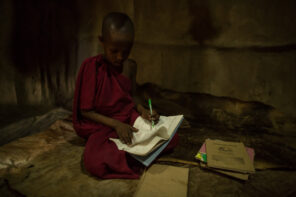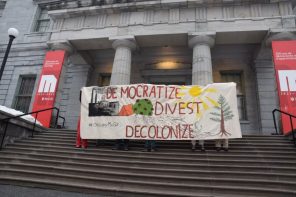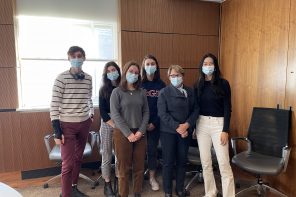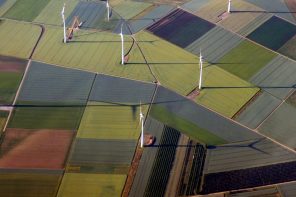This past Sunday, October 6, Climate Justice Action McGill (C-JAM) hosted a group of students in the ECOLE building for an open conversation about the effects of climate change. The event acted as a safe space where participants were encouraged to express eco-anxiety, find unity in climate-related opinions, and become exposed to fresh ideas.
C-JAM, a McGill club that works to seek climate justice from the government and the university, advocates for climate action in many different forms. The facilitators of Sunday’s event suggest that providing small space to discuss the intricacies of climate change is an important next step in grounding the climate movement and can offer a sense of community surrounding climate apprehensions.
This event closely followed the September 27 Global Climate Strike Climate March, which garnered 500,000 protesters in support of the climate movement, though per C-JAM’s open conversation, many attendees of the march seemed to be left with mixed emotions about the state of the earth’s future.
Sarah, U1 Arts, noted the sense of empowerment brought on by the community and massive event, but admitted that once the rush of moment fades it can be unsettling to think about what the next steps are. U2 Environmental Science student Alexia explained, “We can just try our best, I feel like that’s what mankind can always do: just try our best.”
Some cited a personal impact that climate change has had on them as spark for their passion, though the majority of the group felt that their sense of responsibility in this topic is rooted in the intersection of climate issues and social injustice.
“Climate justice is intrinsically linked to social justice. You cannot achieve one without the other”
Daan, a facilitator and member of C-JAM, described the importance of focusing on the socio-economic role of climate change. “Climate justice is intrinsically linked to social justice. You cannot achieve one without the other”. Daan further described that the communities experiencing the greatest impact of climate change are often not the largest contributors to the issue.
Many in the room expressed concern for the lack of marginalized voices given adequate attention in the climate movement, particularly those of Indigenous activists. C-JAM emphasis that an important aspect of the climate movement is prioritizing these voices and shedding light on the different experiences associated with the effects of climate change.
“What brings me hope is myself, because change begins with yourself.”
As the conversation came to a close, one of the facilitators suggested the group share something that makes them hopeful. Documentary photographer, Boris, chimed in, saying “What brings me hope is myself, because change begins with yourself.”








